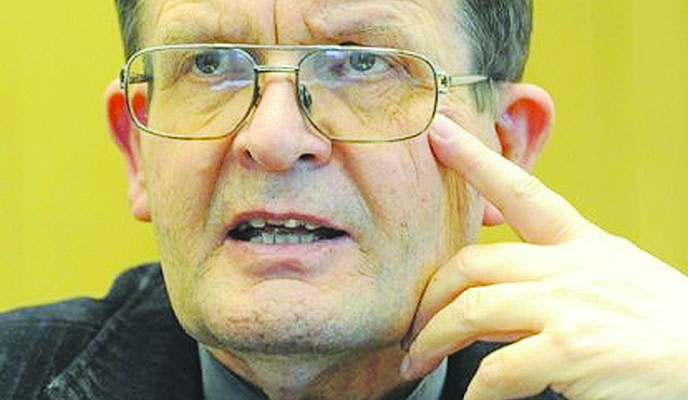
Young men toy-toying coming up Madzima Road shouting in unison “Hondo! Hondo ! Hondo! – War! War! War!” was a common experience in my time in Mbare (2002 – 12).
By Fr Oskar Wermter SJ
The “freedom fighters” in 1980 were challenged to transform themselves into democrats, patient parliamentarians and political negotiators, having got rid of their AK 47s.
Unfortunately this did not happen, at least not to the extent that this was necessary to rule out armed violence as a political weapon.
Subsequent history proves this. “Gukurahundi” may have cost 20 000 lives, mostly defenceless rural people.
In times of high political tension, the first option was not the round table of political negotiation, but the return to the gun. The violence in Matabeleland was the worst, but not the only incident to prove this. Many Zimbabweans lost their lives because they dared to resist politically.
The democratic ballot is meant to take the place of the gun in the struggle for power and political domination. “The pen (of the voter) is mightier than the gun,” democrats celebrated their non-violent way.
The Nationalists (around 1960) opted for an armed struggle when they felt frustrated at the negotiating table. They won the subsequent war and felt justified in their choice. Even after victory they instinctively felt the gun was still their best friend. “The pen cannot undo the revolution,” voters were told.
- Chamisa under fire over US$120K donation
- Mavhunga puts DeMbare into Chibuku quarterfinals
- Pension funds bet on Cabora Bassa oilfields
- Councils defy govt fire tender directive
Keep Reading
So how can we unlearn warfare and violence?
The Constitution, imperfect as it is, embodies the fruits of the revolution: acknowledgment of human dignity, human rights and duties, political freedom and personal liberty, freedom of assembly and expression.
The freedom fighters must publicly acknowledge in a public act of enormous generosity that the revolution (and the Constitution) is not the private property of the freedom fighters and their party. They have fought, not for themselves, but for the people as a whole and for the country.
They must not eat the fruits of the revolution alone. The Constitution, and its freedoms and rights is for all. Citizenship is not the privilege of the few who fought the war and survived, but a gift given to all at birth. All citizens must participate (to me a better word even than democracy) in the life and growth of the country.
If we want Peace we must stop dividing the nation into friends and foes, loyal co-fighters on the one hand, and traitors, on the other.
As Catholics invited to this Conference by the Catholic University we might ask what the tradition of the Church teaches us about War and Peace.
Very influential has been the “Just War theory”. It is based on the simple consideration that a father of a family must have the right to defend his wife and children, his loved ones generally. Leaders must be allowed to organise self-defence, and in the process use potentially deadly weapons. The whole theory is based on the idea of justified self-defence.
So far so good. But what are the consequences? Preparing for self-defence may mean building up a standing army of professional soldiers and building an armoury of weapons. Now it gets critical: once you have a powerful armoury of sophisticated weapons, you also want to use it. You anticipate aggression by the enemy and launch a war — you do not wait for a foreign invasion, but invade yourself first. In the end it matters very little who is defender and who is aggressor.
War and its own logic which defies control has taken over.
The “Just War theory” has a flawless logic, but may have fatal consequences if applied in practice.
Christian peace activists consider the “Just War theory” a trap to be avoided.
Some Christians have opted for a radical “pacifism”.
Jesus taught “Love your enemy and pray for those who persecute you” (Mt 5: 44). Peter was told to put his sword away, “Those who take up the sword will perish by the sword” (Matthew 26).
Franz Jaegerstaetter, an Austrian farmer and father of a family, simply refused to join Hitler’s army. He knew this would cost him his life. In 1942, in the middle of World War II, he was executed by guillotine. Even priest friends advised him against this radical self-sacrifice, for the sake of his family. 30 years later the Catholic Church beatified him (declared him “Blessed”). We wait for his canonisation. Then there will be Saint Francis Jaegerstaetter.
Blessed Bernard Daswa (South Africa) refused to join witchcraft rituals to destroy certain hated public enemies. As a Christian, he said, he could not do this. The witchhunters lynched him instead.
During the Vietnam War Fr Daniel Berrigan SJ, the social activist Dorothy Day and many other Christians in the US and elsewhere refused to support the war. They spent long spells in prison. They felt they had to take Jesus’ words and his action, giving his life, seriously.
We need to study their thoughts and their public stance so as to formulate a policy for our own behaviour in warlike situations.
We need to create a new political culture where violence is no longer a political option. This means that obtaining and retaining political power is no longer an absolute value for which I am prepared to sacrifice human lives. Peace must become our prime value for which we are prepared to give up power, serving the community on the opposition benches for a while.
Where politicians do not have this inner freedom to be servants of the people and not their masters, violence is inevitable. With the Spirit of Jesus in our hearts we must question all violent behaviour and put tolerance and peace first.











